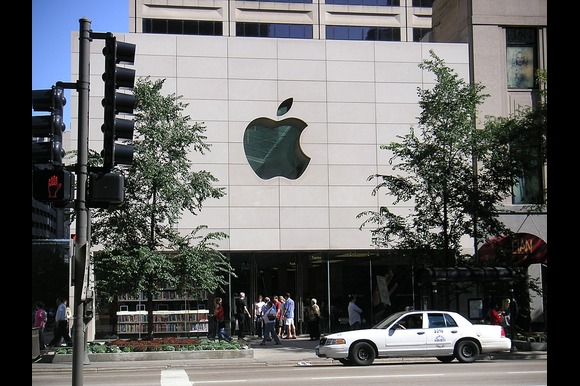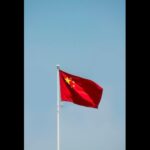Apple Inc. has announced its intention to seek relief from the tariffs imposed by US President Donald Trump on imports from China. In conjunction with this effort, the company plans to hire 20,000 new employees and establish AI server production facilities within the United States.
On Monday, Apple revealed its commitment to invest $500 billion domestically over the next four years. This investment will encompass the development of a new server manufacturing plant in Houston, the establishment of a supplier academy in Michigan, and increased expenditures with its current suppliers across the nation. This announcement follows a recent meeting between Trump and Apple’s Chief Executive Officer, Tim Cook, in the Oval Office.
Following their discussion, Trump remarked, “He’s investing hundreds of billions of dollars,” suggesting that Apple’s local investments are motivated by a desire to avoid tariffs. The President has previously threatened to impose an additional 10 percent tax on products imported from China, where Apple manufactures the majority of its iPhones and other devices. Historically, he has exchanged commitments to invest in the US for tariff relief.
In a post on his social media platform, Truth Social, Trump stated that Apple’s investment reflects “faith in what we are doing.” Apple did not clarify whether these new investments were initiated prior to Trump’s election.
The announcement of a $500 billion investment and the creation of 20,000 jobs over the next four years represents Apple’s most significant commitment to the US to date. The company noted that it has already hired 20,000 research and development employees over the past five years and previously declared in 2021 its intention to invest $430 billion domestically over the following five years.
The recent development indicates a modest increase in Apple’s previous investments and announced initiatives, with an additional allocation of $39 billion and the creation of 1,000 new jobs each year. In pre-market trading in the United States, Apple’s stock experienced a decline of up to 1.5 percent.
Tim Cook expressed optimism regarding the future of American innovation, stating, “We are committed to enhancing our longstanding investments in the United States with this $500 billion pledge towards the nation’s future. We will continue to collaborate with individuals and businesses across the country to contribute to a remarkable new chapter in the narrative of American innovation.”
During the first term of the Trump administration, Cook successfully persuaded the former president to exempt the iPhone from tariffs by arguing that such taxes would advantage competitors like Samsung Electronics Co. Apple also made several announcements regarding U.S. investments during this period and acknowledged Trump’s role in the Mac Pro manufacturing operations in Texas, despite having produced computers there since 2013.
As a result, Apple managed to maintain its high profit margins and avoided significant increases in product prices during Trump’s first term. With Trump back in office and advocating for U.S. companies to manufacture domestically to evade taxes on foreign imports, Apple is adopting a similar approach with its strategic investment announcement that aligns with Trump’s objectives.
In January, Cook was among several CEOs from US technology firms who attended Trump’s inauguration in Washington. Following Trump’s election victory in November, he also had a meeting with Trump at the president’s Mar-a-Lago Club in Palm Beach, Florida.
Apple announced that, in collaboration with Foxconn Technology Group, it will commence the production of servers that support the cloud component of Apple Intelligence—known as Private Cloud Compute—in Houston later this year. This signifies a shift of some production activities from overseas. The company plans to open a 250,000-square-foot facility for this manufacturing in the city next year.
The Private Cloud Compute servers will utilize advanced M-series chips, which are already incorporated in the company’s Mac computers. However, the production of these chips will continue to take place in Taiwan.
Additionally, Apple intends to enhance data center capacity in Arizona, Oregon, Iowa, Nevada, and North Carolina, all of which currently host Apple operations. The company confirmed that mass production of chips commenced last month at a Taiwan Semiconductor Manufacturing Co. facility in Arizona, which is reportedly manufacturing chips for certain Apple Watches and iPads.
Apple stated that the creation of 20,000 new jobs will concentrate on research and development, silicon engineering, and artificial intelligence. The company is also establishing a manufacturing academy in Detroit to assist smaller companies in manufacturing processes. It already runs an academy for app developers in the city and is increasing its manufacturing fund in the US to $10 billion.






